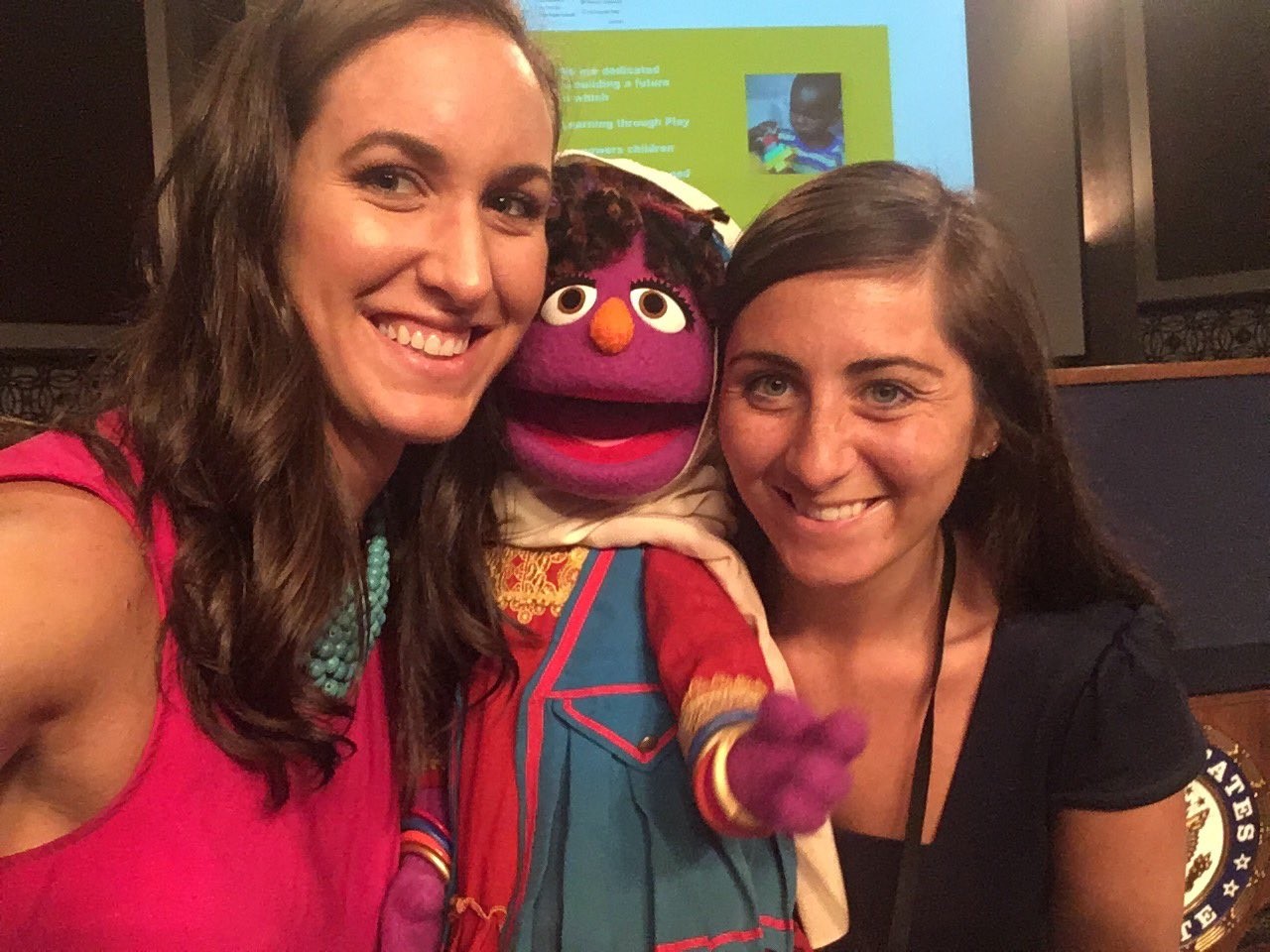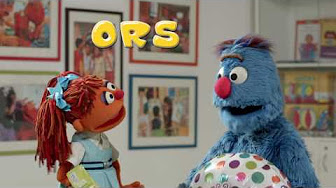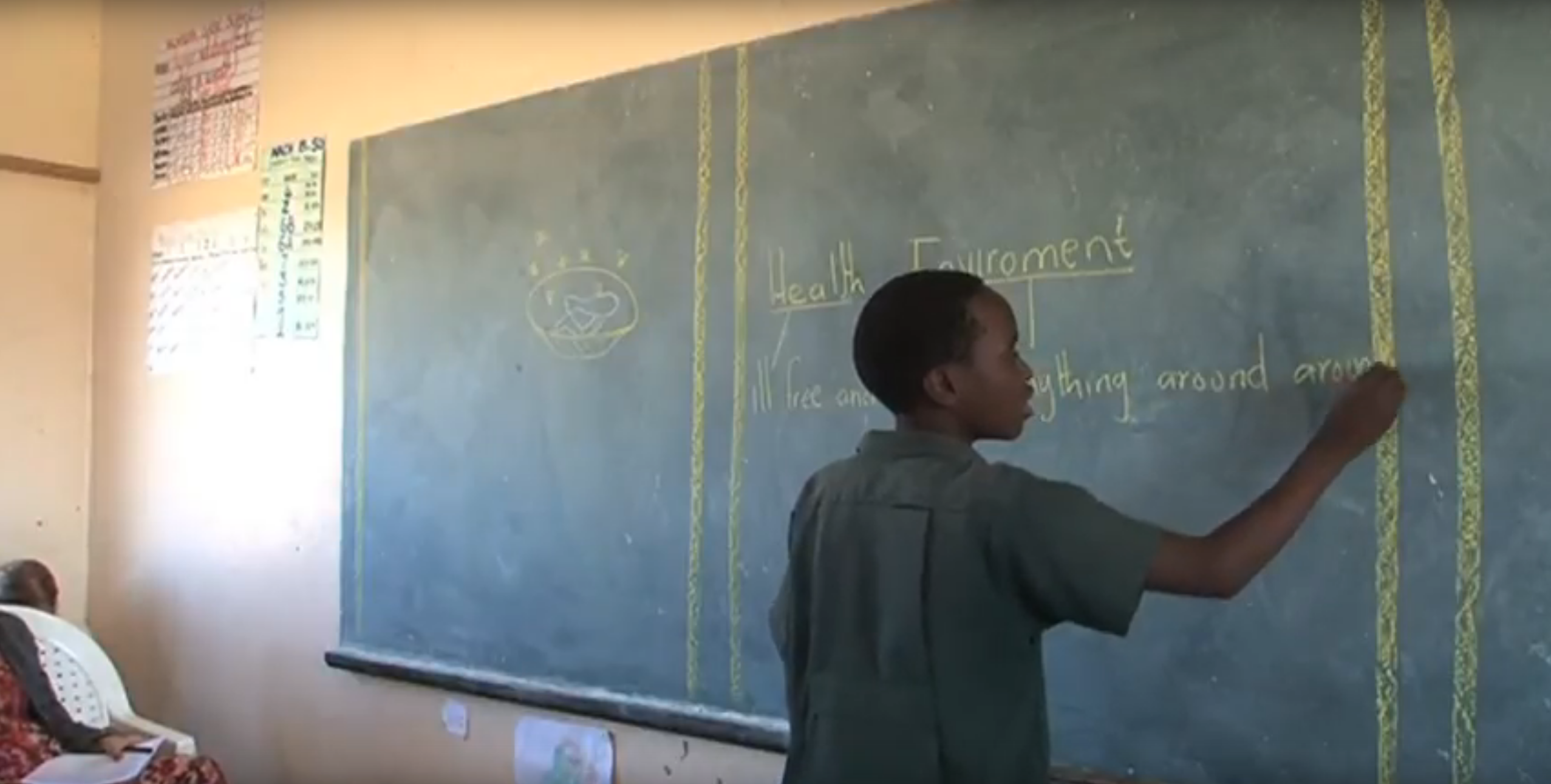Child health programs that “color outside the lines”
|

Zari sandwich! PATH team members Cassie Kobrin on the left, Elana Banin on the right.
Nothing was going to keep this DefeatDD team member away from the Hill event, “Ensuring All Children Thrive: A Global Challenge,” which delivered on its promise of muppets, Legos, and ice cream! Co-sponsored by PATH and several partners and true to the ethos of the DefeatDD spirit, the fun-filled atmosphere embodied an important message about child health. It all goes back to the amazing exponential growth during the first two years of life.
Early child development (ECD) services use play to help children develop to their full physical, cognitive, and social potential. This is especially important in poor regions of sub-Saharan Africa, where two out of three children under five years of age are at risk for suboptimal development. ECD can help close that gap. One program, featured in a Lancet series on ECD and designed to increase cognitive development of stunted children, resulted in a 25 percent increase in average earnings when these children reached adulthood.
You’ll find more muppet cameos in our video about India’s efforts to defeat diarrheal disease. This kind of creative programming educates children early to promote healthy habits and empower them to take ownership as community champions. It combines active learning with key health lessons: win-win!
Like WASH and nutrition interventions, which also prevent stunting and its long-term consequences, integrating ECD helps ensure children reach their developmental milestones and are set up for success later in life. Combining these complementary efforts is mutually reinforcing. ECD programs, which are delivered through existing health programs, exemplify the practicalities and benefits of the integrated approach that we rally behind here at DefeatDD. Along with solutions like WASH, nutrition, vaccines, and breastfeeding education, ECD is an additional tool in the toolbox for helping children reach their full potential.
PATH recently added early child development to our scope, piggybacking onto ongoing work in Kenya, Mozambique, and South Africa with children who are malnourished and/or infected with HIV/AIDS. As PATH’s blog about our ECD work points out, funding can be deployed in a creative and comprehensive way. Children don’t color inside the lines, nor can their growth occur within isolated program boundaries. Looking at the child’s holistic needs, especially within the first two years, will continue to pay dividends for the rest of their lives.













